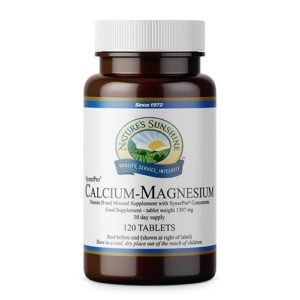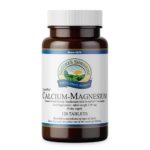The following is a list of the vitamins and minerals that Arthritis Research UK recommends those with joint pain consume…
You get most of your vitamins and minerals from the food you eat rather than from supplements. Not having enough (a deficiency) of some vitamins and minerals seems to be linked with arthritis progressing more quickly. The most important vitamins and minerals to think about if you have arthritis are calcium, vitamin D and iron.
Calcium
Calcium is important for keeping your bones healthy. Calcium deficiency increases your risk of osteoporosis, which causes the insides of bones to be weak, and therefore at risk of breaking. This condition is particularly common in women after the menopause. You may also be at risk of developing osteoporosis if you’re taking steroids on a long-term basis.
A lack of calcium in your diet can also increase your risk of developing a condition called osteomalacia, which causes the outer shell of bones to be soft; this condition can also be known as rickets.

The best sources of calcium are:
- dairy products such as milk, cheese and yogurt – low-fat ones are best, and it doesn’t matter if they come from cows or other animals, for example goats
- calcium-enriched milks made from soya, rice or oats
- fish that are eaten with the bones (such as tinned sardines).
Skimmed and semi-skimmed milk contains more calcium than full-fat milk.
We recommend a daily intake of calcium of 1,000 milligrams (mg), with added vitamin D if you’re over 60. If you don’t eat many dairy products or calcium-enriched foods, then you may need a calcium supplement.
Nature’s Sunshine Calcium-Magnesium is a synergistic blend containing 100% or more NRV of Calcium, Magnesium and Vitamin D, helps to maintain normal bones, teeth and muscles, and normal function of the immune system. This targeted formula recognises that each mineral depends on the other for proper assimilation in the body.
These nutrients are combined with the specially formulated SynerPro® concentrate, which includes brocccoli, carrot, red beet, rosemary, tomato, tumeric, cabbage, grapefruit and orange bioflavonoids, and hesperidin.



